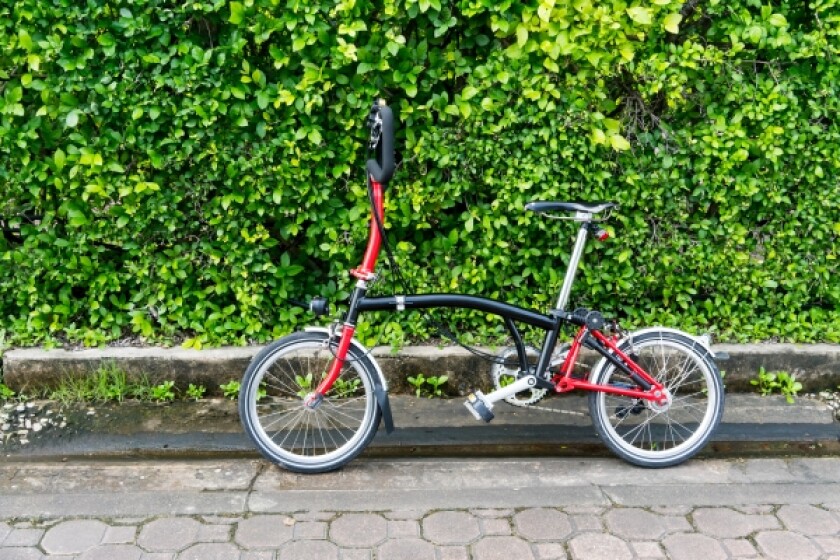Back to the fold: CJEU rules original and functional shapes can be copyrighted
In a 39-paragraph ruling on Brompton v Chedech (C‑833/18) concerning intellectual property protection for folding bicycles, the court confirmed that copyright protection is available to products whose shape is necessary to obtain a technical result.
That protection is obtainable as long as that product is an original work resulting from intellectual creation, in that its author expresses creative ability through the shape in an original manner by making free and creative choices in such a way that the shape reflects the author’s personality.
The decision deviated from an earlier opinion from advocate general Manuel Campos Sánchez-Bordona, who in February set out that designs with shapes dictated by technical considerations that do not leave room for the exercise of creative freedom are not eligible for copyright protection.
Brompton, a UK-based company, claimed Korean maker Chedech had infringed the copyright of its folding bicycles, and filed suit in Belgium’s Liege Commercial Court (Tribunal de commerce de Liège) in 2018. The court referred the case to the CJEU for a preliminary ruling.
The Belgian court has yet to confirm when it will issue its ruling now that the CJEU has released its decision.
The CJEU’S ruling is the latest in a long series of copyright-related matters, such as NUV and Levola Hengelo, which have harmonised copyright law among EU member states.
Appeal against Australia plain packaging goes up in smoke
In its 232-page report published on Tuesday, the body said it agreed with a previous panel finding that Australia’s Tobacco Plain Packaging Act (TPPA) was not inconsistent with the TRIPS Agreement's Article 16.1 or Article 20, which govern trademark use among WTO members.
This decision puts an end to an eight-year dispute originally brought by Cuba, the Dominican Republic, Honduras, Indonesia and Ukraine against Australia’s plain packaging law.
In a press statement, the World Health Organisation’s Framework Convention on Tobacco Control said it was celebrating a major victory for public health.
Adriana Blanco Marquizo, head of the convention secretariat, wrote: “This decision represents a landmark victory for global health and a major setback for the tobacco industry. Plain packaging is consistent with international trade law as part of a comprehensive approach to tobacco control that protects people from the harms caused by tobacco.”
INTA will be less pleased by this result. While the trademark organisation has yet to release a statement on the matter, it has previously voiced its objections to plain packaging laws because they erode trademark rights.
The TPPA was enacted in 2011 and prohibits all use of trademarks (other than word marks) on tobacco product packaging. Countries including Hungary, Ireland, New Zealand, Norway and the UK followed suit and enacted similar plain packaging laws.
There goes another one: TiVo CIPO jumps ship
According to a US Securities and Exchange Commission filing, Patel will leave with a golden parachute of close to $1.8 million – $450,000 in cash, $1.3 million in equity and $31,686 in benefits – after almost three years at the business.
Patel, who handled TiVo’s long-running patent fight with Comcast after being hired in 2017, is just one among several TiVo executives who are jumping ship, including CEO Dave Shull and general counsel and chief compliance officer Pamela Sergeeff. Shull will receive almost $4.1 million in golden parachute compensation.
Patel, who is based in San Francisco and is a law graduate of UC Berkeley, has previously worked in senior positions at Technicolor and IBM. It has yet to be announced where he will go next.
It was also revealed last week that Eeva Hakoranta was leaving her position as head of IP at Nokia to join InterDigital. And Erich Andersen joined TikTok at the start of 2020, having worked at Microsoft as chief IP counsel for almost six years.
EU countries lose €15bn in tax revenues to counterfeiting
The document, which was released as part of the office’s annual spring campaign and world counterfeiting day efforts, reported that the 11 sectors most directly affected by counterfeiting, including telecoms and pharma, may have lost more than €83 billion in sales between 2013 and 2017.
It went on to say that more than 670,000 legitimate jobs were lost, while governments missed out on €15 billion in tax revenues per year.
"As serious as these economic damages are, the harm caused to public health, consumer safety and the environment as a result of counterfeit goods is arguably an even more serious consequence," the EUIPO report says.
The office also tweeted that this report shows that “IP crime isn’t a victimless crime”.
Black Lives Matter UK marks will probably fail
Commenting on this news, Potter Clarkson partner Sanjay Kapur in Nottingham noted that the ‘I Can’t Breathe’ application included a disclaimer that the mark was to be used for charitable work and not for personal gain on the back of recent unfortunate events.
But while this disclaimer seems to have been provided as a way of explaining the intention behind the application, he said, this is not how a disclaimer is used in trademark practice. While it will not lead to the refusal of the application, it will also not have an impact on the applicant’s intended use of the mark, whatever that may be.
“It is unlikely that these two applications will be considered suitable for registration,” he said.
“The UKIPO will decide whether the marks are ‘contrary to public policy or accepted principles of morality’, and we anticipate that they will rightly be refused on this basis.”











